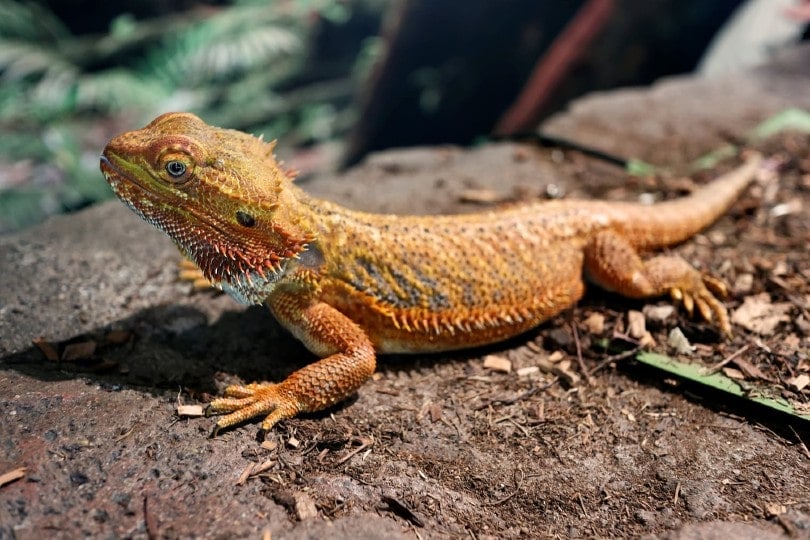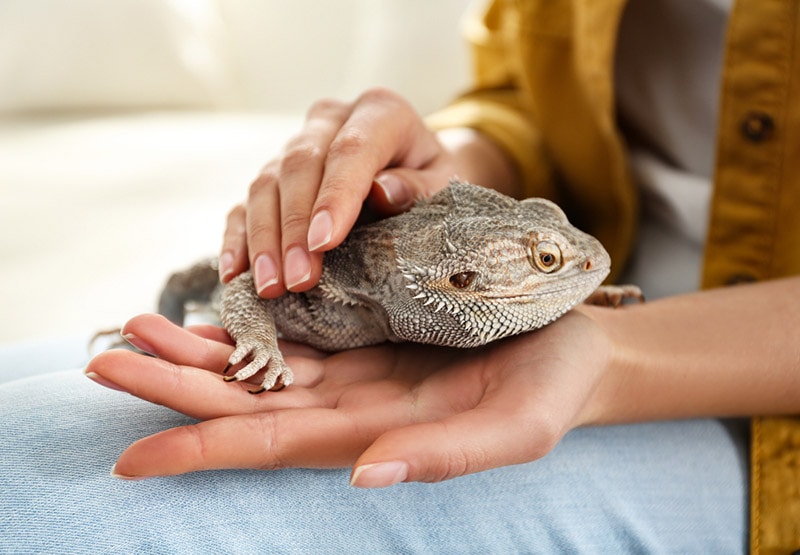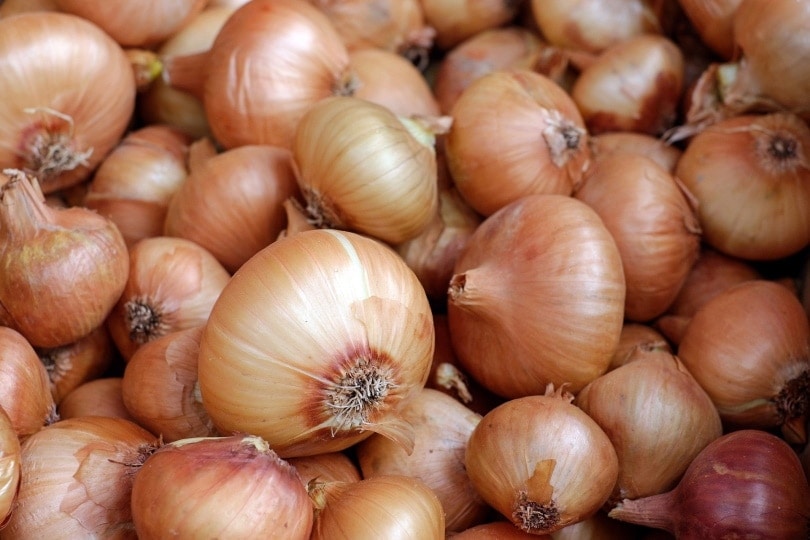Can Bearded Dragons Eat Raisins? Vet Approved Health & Nutrition Facts
Updated on

Click to Skip Ahead
As omnivores, bearded dragons need to eat a variety of plant and animal material to thrive. While most of their plant intake should come from vegetables, beardies can be offered fruit occasionally as a special treat.
But what about dried fruits, specifically raisins? Raisins are not toxic for bearded dragons (though they are for dogs and cats), but that doesn’t mean they’re something you should add to your beardies’ diet. Read on to learn about the benefits and risks of offering raisins to your bearded dragon.
Raisin Nutritional Information
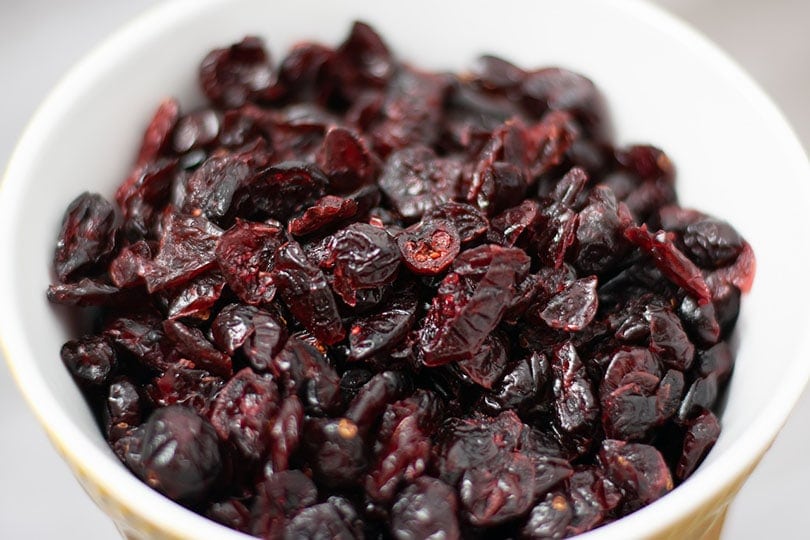
Before we delve into the pros and cons of offering your beardie raisins as a special treat now and then, it’s important to know the nutritional information of this snack. According to the USDA, raisins offer the following nutrients per 100 grams (about 50 seedless raisins):1
| Calories: | 299 calories |
| Protein: | 3.3 grams |
| Fat: | 0.25 grams |
| Carbohydrates: | 79.3 grams |
| Fiber: | 4.5 grams |
| Sugars: | 65.2 grams |
| Calcium: | 62 mg |
| Phosphorus: | 98 mg |
| Water: | 15.5 grams |
What Are the Benefits of Raisins for Bearded Dragons?
When determining the appropriateness of food for bearded dragons, you need to review the nutritional information and note the serving size. The chart above provides nutrition facts for 100 grams of raisins, which is much more than you should ever offer your beardie in one sitting. So, while it looks like raisins provide a great source of protein, fiber, and nutrients, the number of raisins you’d serve your beardie would be much smaller than the listed serving size, providing far fewer nutrients than you might initially expect.
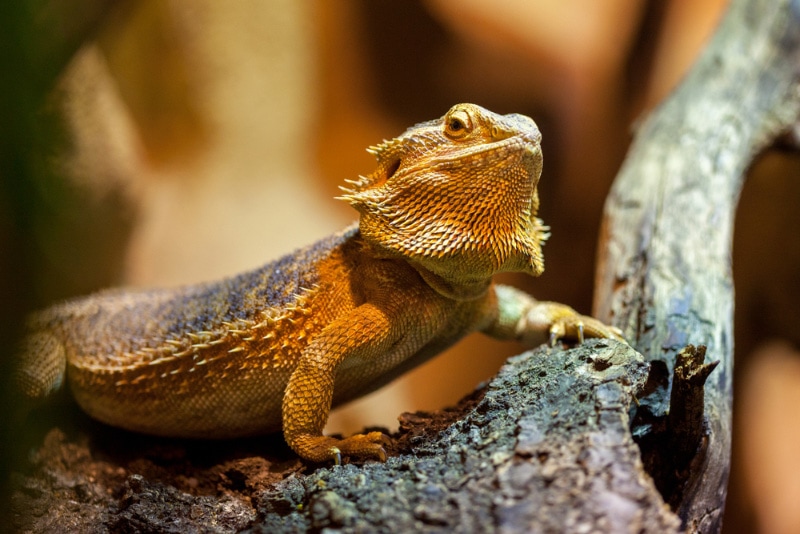
What Are the Risks of Raisins for Bearded Dragons?
There are two main risks concerning raisins for bearded dragons: their high sugar content and their poor calcium-to-phosphorus ratio.
High Sugar Content
Raisins are very high in sugar. As you can see from the nutritional chart above, 100 grams of raisins contain 65.2 grams of sugar. To put that in perspective, 100 grams of fresh strawberries contain just 4.86 grams.
Feeding foods too high in sugar can cause obesity, gastrointestinal issues, and lead to tooth decay.
Poor Calcium-to-Phosphorus Ratio
Bearded dragons require more calcium in their diets than phosphorus. The calcium-to-phosphorus ratio of the foods you offer is essential, as when one increases, the other decreases.
Most experts recommend a 2:1 (Ca:P) ratio for growing reptiles and 1.5:1 for adults. Beardies deficient in calcium can develop painful conditions like metabolic bone disease. As you can see from the nutritional chart above, raisins contain more phosphorus than calcium, making them inappropriate to feed too often in too high quantities.
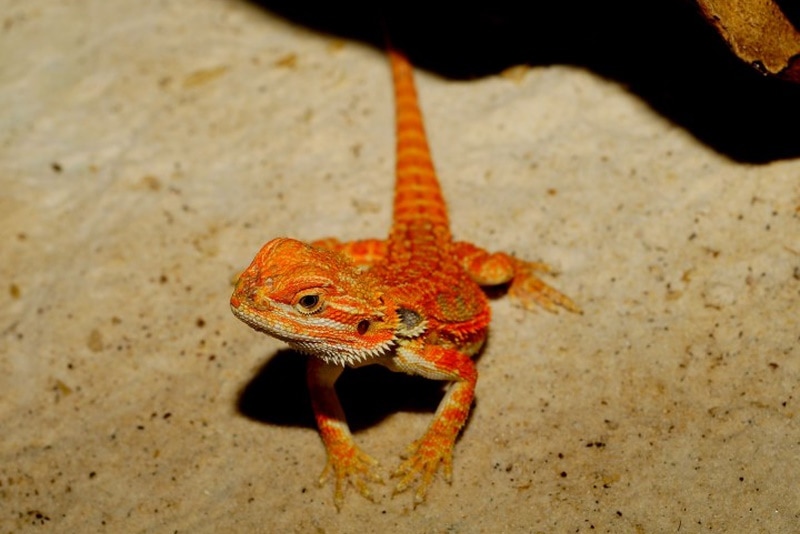
What Fruits Can Bearded Dragons Have?
Fruit should play a very small role in your bearded dragon’s diet. It can be offered once a month as a special treat, but any more than that, and you’re putting your dragon’s health at risk due to its high sugar content.
- Apples
- Pears
- Kiwi
- Strawberries
- Apricots
- Raspberries
- Figs
- Peaches
- Banana
- Figs
Final Thoughts
While raisins are technically non-toxic, we still don’t recommend feeding them to your bearded dragon. However, if yours goes crazy for them and you want to give him a special treat, you can provide a single raisin or two once a month. The truth is that there are far more nutritious fruits you can offer that your beardie is just as likely to go nuts over.


